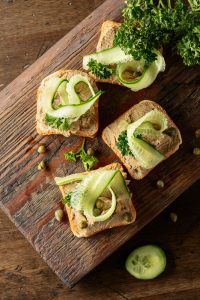Sustainability’s seat at the table
by Metropol | April 30, 2025 8:30 am
Nose-to-tail eating is a growing practice as society shifts towards sustainable eating.
You might shudder at the thought of consuming animal liver, heart, or brains, yet offal disguises itself often – sausage skin usually derives from sheep or pig intestines, while pâté is made with liver. Aside from the uninviting impression of eating internal animal organs, offal comes with a rich source of essential vitamins and protein, and surprisingly delicious flavour.
That nutritious punch – we’re talking vitamins A, D, E, and K, B vitamins, iron, zinc, and magnesium – is often higher than what we would get from typical muscle meat. Plus, the protein in organ meats contain all nine essential amino acids to promote effective body function.
Eating nose-to-tail takes a stance. Globally, food loss and waste contributes to 8% of greenhouse gas emissions – so adopting an offal-inclusive diet reduces personal food waste. Consuming all edible parts of an animal respects its sacrifice while reducing strain on the environment. Across many European and Asian countries, no edible animal part goes to waste, and generations before us lived this attitude.
When you tuck into a typical lamb, beef or chicken dish, from pasta to casserole, consider how it might be reimagined to incorporate offal and reduce food waste.

Ease into the world of offal with these tips:
- Start your journey at a restaurant and let the professionals do what they do best: make everything, even the ugly, mouthwatering. This can help develop your flavour preferences and pick up ideas for cooking at home.
- Embrace the undesirable: enjoy foods that invisibly incorporate offal such as a classic steak and kidney pie or pâté.
- Mix with mince: disguise ground offal with your typical mince dish rotation, and watch your family never realise the difference. Work with a 30% offal to 70% muscle meat ratio.
- Go slow: begin with mild dishes and organs that aren’t overbearing such as bone marrow.
Source URL: https://metropol.co.nz/sustainabilitys-seat-at-the-table/